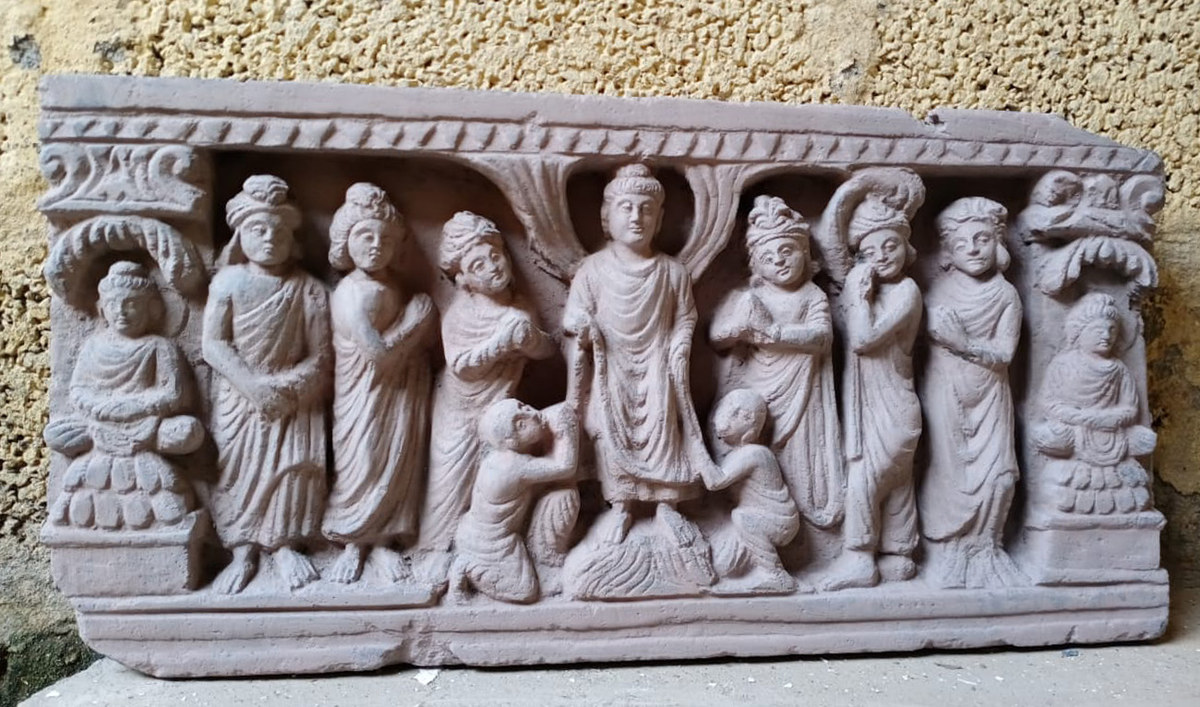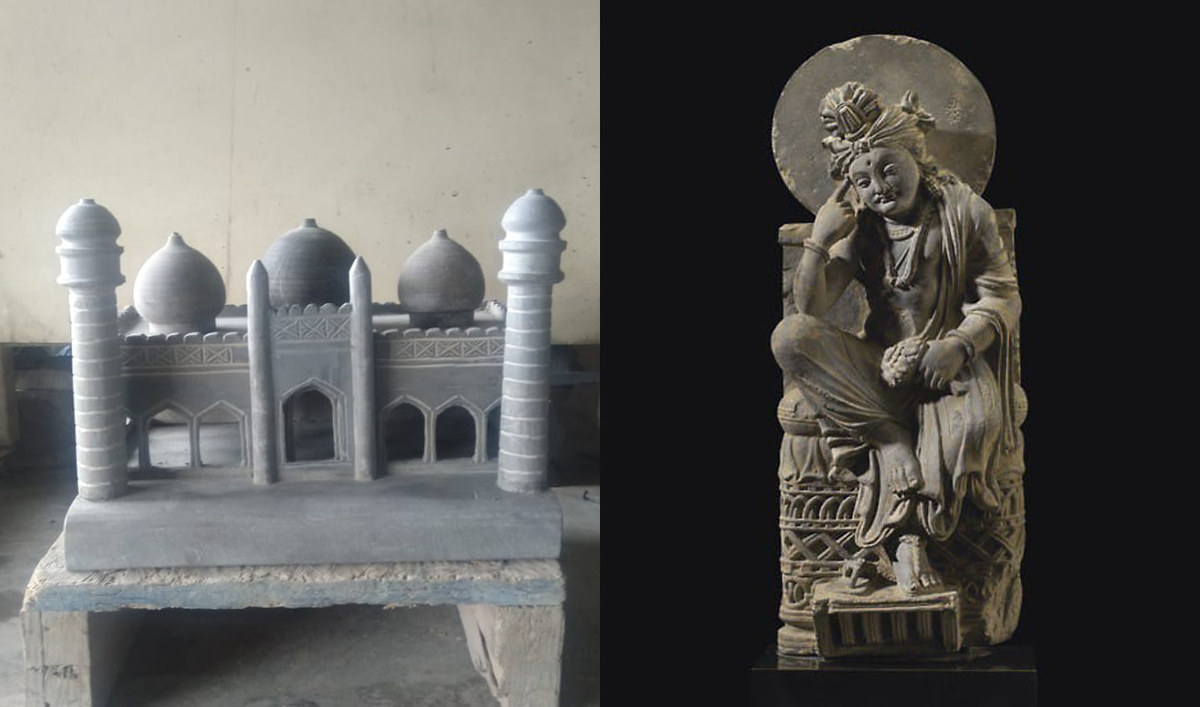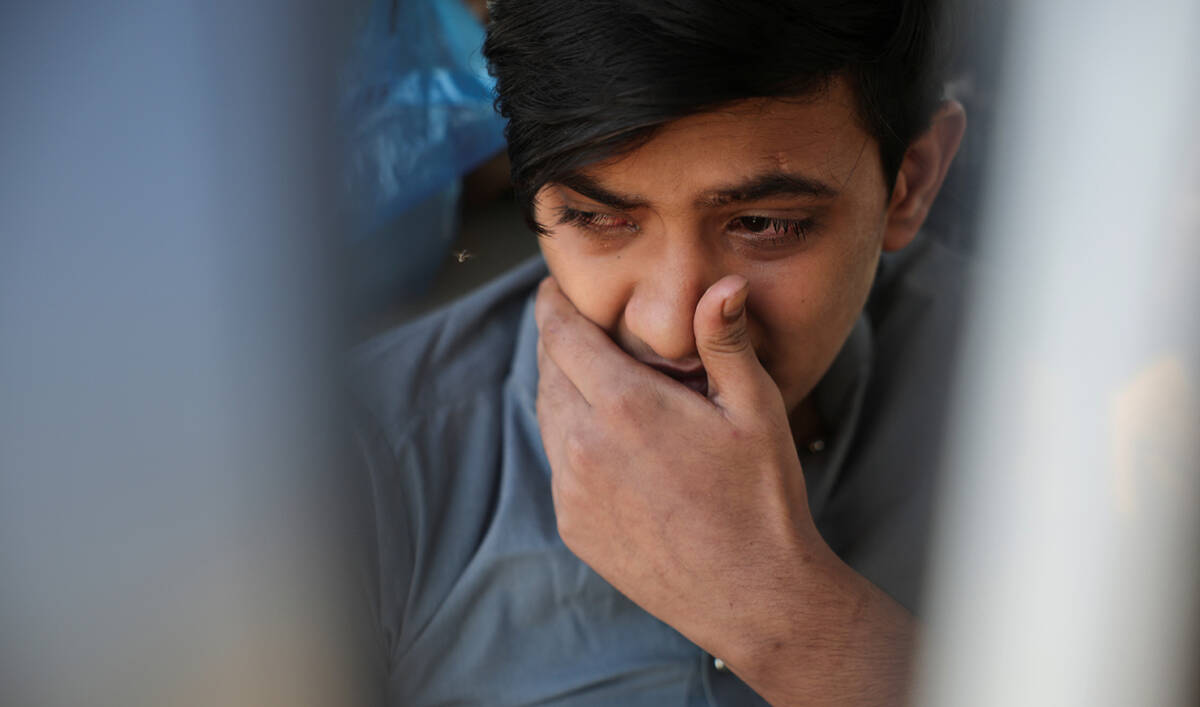KARACHI: The practice of stonecraft in the area that makes up modern day Pakistan is as old as Buddhism itself but without government patronage and after decades of militant attacks that scared off foreign buyers and tanked exports, the ancient art was all but lost.
Now, a handful of artists and entrepreneurs are trying to preserve and restore the dying craft.
Ancient cities in Pakistan such as Taxila in the country’s eastern Punjab province or Thatta in southern Pakistan boasted of artisans skilled in the art of stonecraft, a technique in which stone is used as the primary material to build statues, buildings and structures as well as day-to-day use such as pots and utensils. In Pakistan’s northwestern Khyber Pakhtunkhwa province in particular, Gandhara art developed, using a style of visual art focused on creating statues of Gautama Buddha, the founder of Buddhism. Sindh’s Thatta city became famous for its large stone structures, combining impressively carved decorative and floral motifs and arabesque patterns.
“From Karachi to Badin, you will see stone-carved graves of multiple tribes, their symbols have been engraved to differentiate them from one another,” anthropologist Zulfiqar Ali Kalhoro, told Arab News. “Particularly, Ghazi Tehsil in Haripur [city] has had remarkable stone carving until the 1970s. Khyber Pakhtunkhwa still has the tradition.”

The 3,000-year-old city of Taxila had long been referred to as the ‘City of Artisans’ due to craftspeople who produced rich Gandhara art. (Ilyas Khan)
However, the craft declined with the passage of time, Kalhoro said, due to a lack of patronage.
“No one was willing to buy pieces from the artists which were made otherwise for clients living outside Taxila. With conversion, motifs also changed and this declined the craft. People purchased those which depicted non-figural elements. Taxila was home to stone craft tradition. Many artists migrated to other regions and continued to produce as per demand by the clients.”
The 3,000-year-old city of Taxila, Ilyas Muhammad Khan, a sculptor from the city, said, had long been referred to as the ‘City of Artisans’ due to craftspeople who produced rich Gandhara art.
“Over the years, Taxila attracted tourists and foreigners, being an ancient city, and local sculptors started selling replicas of Gandhara’s famous artwork abroad as ‘antiques’ to make money,” Khan, a sculptor for over three decades, said. “Back then, there were hardly three to four artists but they taught the skill to their fellows and the number increased over time.”
A decline in the tourist industry, devastated by militant violence in Pakistan after the September 11, 2001, attacks and Pakistan joining the war on terror, also impacted the art of stonecraft.
Pakistan was last a prominent tourist destination in the 1970s when the “hippie trail” brought Western travelers through the apricot and walnut orchards of the Swat Valley and Kashmir on their way to India and Nepal.

The ancient city of Taxila had artisans skilled in the art of stonecraft, in which stone is used as the primary material to build statues, buildings and structures. (Ilyas Khan)
But after 2011, deteriorating security chipped away at the number of foreign visitors. There were fewer buyers for stone artisans, who lost their livelihoods and left the trade.
Many artisans are now making efforts to revive the lost art. Shakoor Ali from Shigar Valley in the mountainous Gilgit-Baltistan region is one such craftsman, who turns serpentine stone into handicrafts and decorative pieces.
Ali inherited the craft from his forefathers.
“They used to do all the work with [their] hands and I started the same but now I have set up a machine and a small workforce which helps me create these pieces,” Ali told Arab News.
The award-winning stone mason recently displayed his work at the Gemstone and Mineral Exhibition 2022 in Islamabad.
Islamabad-based design label Noon and Co., spearheaded by Taimur Noon, is also working on the preservation and revival of the ancient art of stone craft in Pakistan.
Before opening his Islamabad store last month, Noon traveled across Pakistan, identified and acknowledged the skill of stone masons in various parts of the country and felt he could elevate the design sensibility.
“The craftsmanship of our artisans is unparalleled,” Noon told Arab News. “I wanted to give them a design direction, designs that are in demand today.”
He said stonemasons in Pakistan produced stonecraft by hand while the workforce in developed countries employed machines to do the same. Innovation and diversification in stonecraft are key, said Noon, adding that the entire process of selecting the relevant stones and then fashioning them was “quite challenging.”
But Noon hopes his work can keep alive a conversation around stonecraft “so that the revival and preservation of the ancient craft stays in motion.”
“I want to show people in Pakistan and beyond what we are capable of,” he said, “make this skill commercially viable and turn it into a career for artisans.”


















